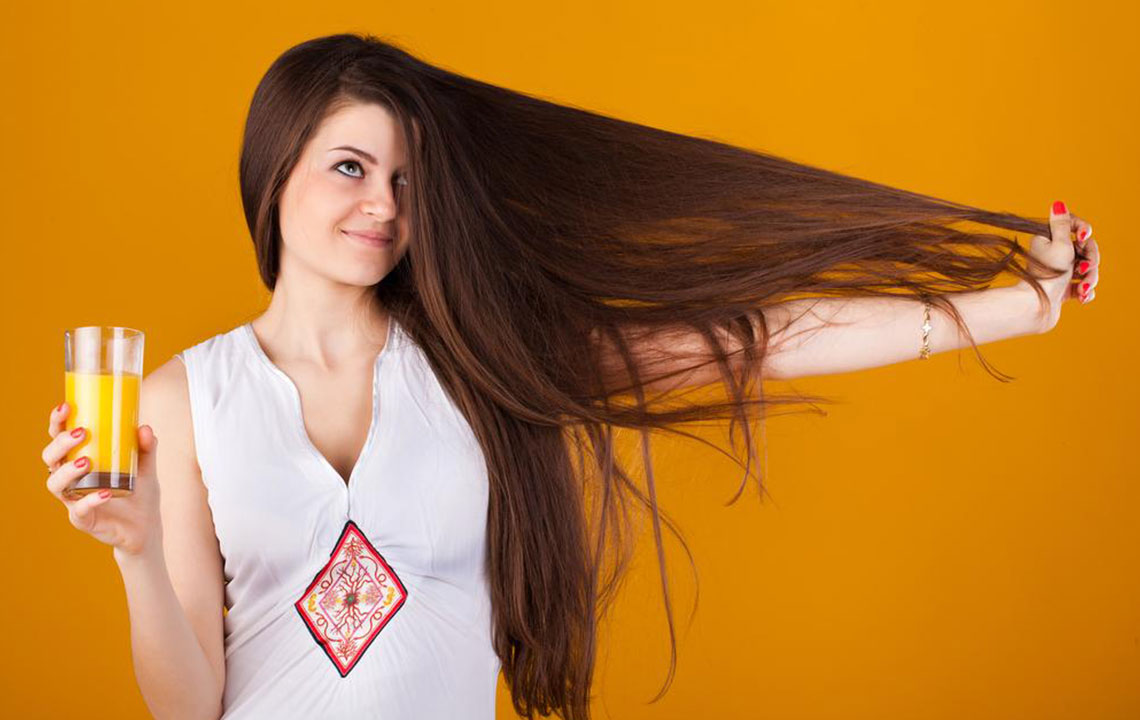7 Best Hair Growth Vitamins to Boost Hair Health

When someone looks at you, what they preferably look at first is your eyes, face or even smile. But your hair is the most distinguished part of your face and defines how you look. Hair is an essential part of your body that compliments your personality, and overall looks. More healthy the hair growth, more elegance it adds to your appearance. But sometimes due to stress, lack of vitamins, genetics, hormonal imbalance and other environmental factors, people suffer hair loss.
Hair loss can take away your confidence and even add make you look dull. But as sayings go, there is a solution for everything. Nothing is impossible, and you just need to find the right remedies that can improve your situation.
Vitamins—the best solution for treating hair loss, as it can fill in the deficiencies, that your body requires. Our lifestyle and eating habits are not good enough because of work pressure, hectic life and people adapting themselves to the unhealthy junk food. All of this leads to lack of vitamins that are necessary for proper functioning of the body. Vitamins not only help fill in the requirement of the body but also help in hair growth.
There are certain vitamins that help in hair growth. You should consume these vitamins regularly before you go all in for other artificial methods for hair growth. They can sometimes lead to other unwanted side effects.
Best Hair Growth Vitamins
The best vitamins that would accelerate hair growth are:
Vitamin A : Vitamin A is an essential vitamin that helps in increasing the cell count, which in turn helps in accelerating hair growth. Vitamin A generates sebum, which is natural oil in the scalp area, which provides the hair, the shining quality and keeps the hair from drying.
Vitamin A should be included in your diet, but make sure that you consume it in limits because consuming an excess of the vitamin can lead to hair loss.
Vitamin A Rich Victuals
• Pumpkin
• Carrots
• Yogurt
• Milk
• Eggs
• Sweet Potatoes
• Spinach
• Kale
Vitamin C : Vitamin C works as an antioxidant and helps in reducing oxidative stress. It prevents hair graying and hair loss. Vitamin C generates collagen, a protein that helps in healthy hair growth. Also consume a lot of iron, which is an important source for proper hair growth.
Vitamin C Rich Victuals
• Oranges
• Kiwi
• Strawberries
• Guava
• Broccoli
• Lemon
Vitamin B12 : B12 is B complex vitamin that enhances cell count, which further helps in hair growth. Vitamin B12 averts hair loss and helps the body to absorb iron better.
Vitamin B12 Rich Victuals
• Milk
• Eggs
• Yogurt
• Meat
• Cheese
Vitamin B7 (Biotin) : Biotin is the primary source of vitamins for hair growth. Biotin not only enhances hair growth but also makes them look glossy and thick. Biotin helps generate fatty acids inside the cells, and thus facilitates hair growth.
Hair constitutes a protein called keratin, and such proteins are further formed by amino acids. Amino acids are formed by the reaction between biotin and cell enzymes. Therefore biotin forms an essential vitamin source that accelerates healthy hair growth.
Vitamin B7 (Biotin) Rich Victuals
• Yeast
• Avocado
• Whole Wheat Bread
• Walnuts
• Mushrooms
• Bananas
• Eggs
• Salmon
• Pork
• Raspberries
• Cauliflower
Vitamin E : Vitamin E similar to Vitamin C works as an antioxidant, that is known for battling free radicals. Vitamin E contains the antioxidant known as tocotrienols, which keeps the hair moistened, maintains a healthy scalp, and also enhances blood flow, as a result of better oxygen intake.
Vitamin E Rich Victuals
• Fish
• Sunflower seeds
• Peanuts
• Beans
• Green leafy vegetables
• Dried herbs
• Avocados
Vitamin B3 (Niacin) : Niacin or Vitamin B3 make the hair shine. Niacin consists of nutrients that keep the hair healthy and lustrous. The benefits of including Niacin in your diet are—maintaining the cell structure, enhance blood flow to the scalp, and provide nutrients, and much-needed oxygen to the hair follicles.
Vitamin B3 (Niacin) Rich Victuals
• Peanuts
• Lamb Liver
• Green Peas
• Sunflower seeds
• Fish
• Avocado
Vitamin D : If your body lacks Vitamin D, it can lead to a disease called alopecia areata, a condition that causes hair loss in the form of bald spots. Vitamin D helps in generating new follicles in the scalp and facilitating hair growth. The best source of Vitamin D intake is taking a sunbath.
Vitamin D Rich Victuals
• Fish
• Mushrooms
• Salmon
• Milk
• Eggs
• Tuna
Keep in mind the vitamins, and boost your hair health.
While these foods are beneficial, you can also try hair growth products to boost your hair health faster. If you’re looking for a holistic approach to hair wellness, check out VEGAMOUR’s GRO Hair Serum. It features vegan phyto-active ingredients like mung bean, curcumin, and red clover that enriches hair follicles and improves overall hair health. It is a clinically-tested hair serum that can make your hair appear longer, denser, thicker, and healthier. VEGAMOUR’s GRO Hair Serum is 100% vegan and free of all toxic chemicals and carcinogens.


